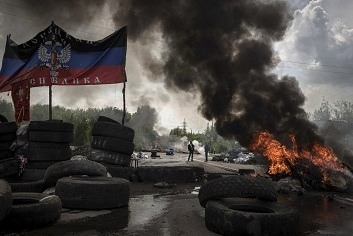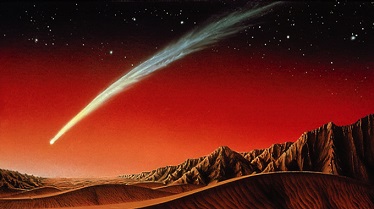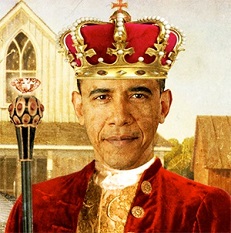The Unraveling of Ukraine

A rebel checkpoint Saturday as Ukrainian troops pressed their
assault on separatists in the east. (Photo: Sergey Ponomarev/NYT)
The Kiev regime’s deadly assault on cities in the East and South of Ukraine in recent days has opened a new chapter in the ongoing conflict in that country. The scores of dead and injured provide a sad testament to the fact that what was a united country little more than three months ago has now become a nation tearing apart at the seams.
As the Ukrainian military launches assaults on key cities in the East and South, the danger of civil war, which once seemed possible but unlikely, is now becoming an all too real threat. However, the threat does not end there. A full blown civil war in Ukraine would necessarily require intervention from Moscow as the security of Russian-speaking Ukrainians, Russian nationals in Ukraine, as well as Russia itself would be threatened. With a neoliberal-fascist alliance supported by, and subservient to, the West, ruling the day in Kiev, Moscow would be forced to respond if only as a defensive measure. In such a scenario, events and outcomes often become unpredictable, precisely the recipe for a military conflict of terrifying global proportions.
The Changing Complexion of the Crisis — In order to understand where the situation in Ukraine is heading, it is critical to examine how the nature of the conflict, specifically in the East, has transformed from one of political grievances and calls for regional autonomy, to a military and paramilitary campaign to crush opposition. In doing so, it becomes clear that this fundamental transformation has severely limited the political and diplomatic options of the various sides, making a civil war and regional instability a very real possibility.



























